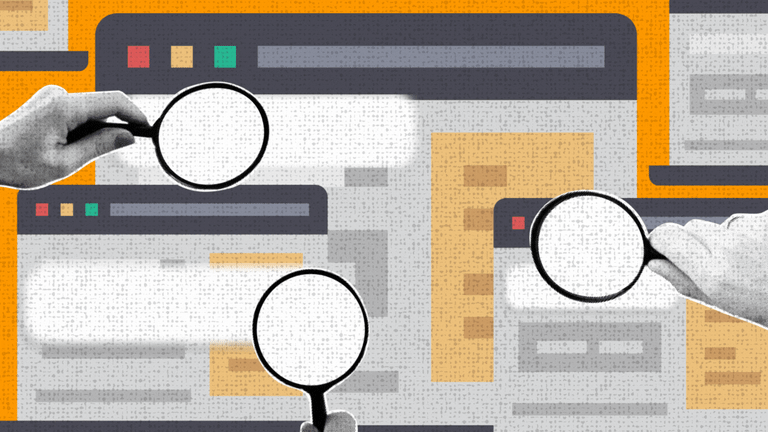
Calling out racism — or the racial power dynamics of aid workers in low- and middle-income countries — as a systemic problem of international development has remained a topic that has not honestly been embraced in polite company.
The challenges for women of color in landing leadership roles
From a lack of allies to the negative impact risk-taking could have on their peers, Devex takes a look at some of the barriers and biases facing women of color in landing leadership roles in global dev.
We are encouraged to talk openly about “diversity and inclusion,” a neat euphemism to encapsulate the belief that all groups are welcome at the table of ideas. And yet if we dig a little deeper, we realize that diversity and inclusion do not speak to the entrenched racial-ized power imbalances that define those who receive aid and those who deliver aid.
To say unequivocally that the international development system is racist and exclusive is to open a Pandora’s box of denial and hand wringing where those who deliver aid clutch their pearls in abject consternation. Many of us are quite familiar with the uncomfortable silence where organizational leaders squirm, as the perception of being racist is more potent than actual racism or its impact on real people.
I understand that there is a certain level of comfort in the word diversity. It is how we refer to “women,” women panels, women-led events, and women pursuing and winning seats at the leadership table.
What diversity has not meant is racial diversity.
The excitement signaling this new era of diversity in international development has not translated into free and equal spaces for black and brown women, in particular, to be heard. In fact, diversity panels at international events have gained in popularity and combined with the recent fallout of the #AidToo movement — a new period of female expertise challenging the international humanitarian and development sector long dominated by white men has blossomed.
Yet, we would still be hard pressed to find the international event or organization where black and brown women are the focal points for ensuring that specific perspectives and themes are at the forefront and not relegated to the hastily thrown together panel as an afterthought.
Let’s face it: A rising tide will not and has not lifted all boats.
More on #AidToo:
► Commitments and chaos at London's #AidToo summit
► In the era of #AidToo, global health is short on sexual harassment policies
Aid organizations and donors are often reluctant — make that adamantly opposed — to placing a focus on race and racism in the aid sector, especially as donor countries are often quite proud of their giving practices and therefore, “not racist.” The simplicity of this belief merely places the blame for the extraordinary failures of the sector on a few “bad apples” and individual organizations allowing larger systemic problems to go unchallenged.
But isn’t the idea of aid rooted in a racist construct created by rich countries spawning this massive, out-of-control industry of “helpers,” “do-gooders,” and those who just “love Africa” or whatever part of the developing world that has resonated?
Inherent in the very concept of aid is race and racism because only in this system can majority white societies with ample resources determine what poor black and brown people need, how much they need, set up the parameters for delivery of what they need, and of course create an elaborate mechanism for monitoring how well they have managed the donated funds to meet their needs.
How many hours have we willingly offered to the mind-numbing monitoring and evaluation tools created in headquarters, without local input, to assuage donors that local aid organizations are diligent stewards of the generous taxpayer dollars of mostly white donors in the developed world?
As a result, the very people who are in need of the help that development aid is designed to elevate are stripped of agency over their own lives, normalizing dependency in their own eyes.
Last month, an article was published in Medium written by Alex Jones titled, “We need to talk about racism — in the development sector,” where the author was in attendance at a meeting in Oxford, United Kingdom, about an Ebola treatment facility in Sierra Leone. A question was asked that highlighted the manner that racist thinking will often reveal itself in development work.
Jones wrote: “The audience member asked something along the lines of ‘while it is not very politically correct, is the lack of maintenance due to the inherent inability of Africans to maintain infrastructure?’”
Jones was offended by the question and challenged the underlying racism that was couched in the language of political incorrectness. I submit to Jones that any comment that starts out with the caveat of being “politically incorrect” is surely going to be racist and offensive. It is how this sanitized racism manifests itself — benign, pseudo-intellectual arguments that serve to reinforce the narrative that Africans, in this example, were inherently incapable which is why they need and will surely continue to need the generosity of developed countries.
This is how racism shows up in the development aid sector, because the “helpers” and “do-gooders” arrive in places such as Sierra Leone oozing natural confidence and bravado buttressed by their titles as expatriates, holding advanced degrees from elite schools in Europe and the United States and earning significantly higher salaries than their local counterparts.
I submit to Jones that the comment he heard in Oxford was the rule and not the exception: His experiences while working in aid and development reflect the sector’s unwillingness to confront and dismantle old biases rooted in racist tropes and colonial thinking.
How can we move forward while transforming the very notion of the need and purpose for international aid?
International organizations and NGOs must start at the leadership table where decisions about interventions are made. The development and aid sector cannot be reimagined without an unflinching introspective look at the systemic imbalances perpetuated over the years by powerful organizations working in developed countries.
• Begin with the unapologetic commitment to diversity that includes racial diversity and representation of marginalized groups.
• Amplify the voices and experiences of black and brown women from marginalized communities at the policy-making table.
• Organizations must build bridges that connect headquarters to country offices in a meaningful and intentional manner with a clear focus that supports the leadership and professional development of local in-country staff.
• International organizations working in developing countries cannot and should not have all white leadership.
• Give the power and responsibility of designing safeguarding systems and policies for your organizations to those most impacted by incidences of rape and violence; they know the context and they know what is necessary to combat these problems. Any woman — anywhere in the world is not good enough.
• It is the responsibility of people leading aid organizations to ensure that country programs have the buy-in and consent of recipients.




